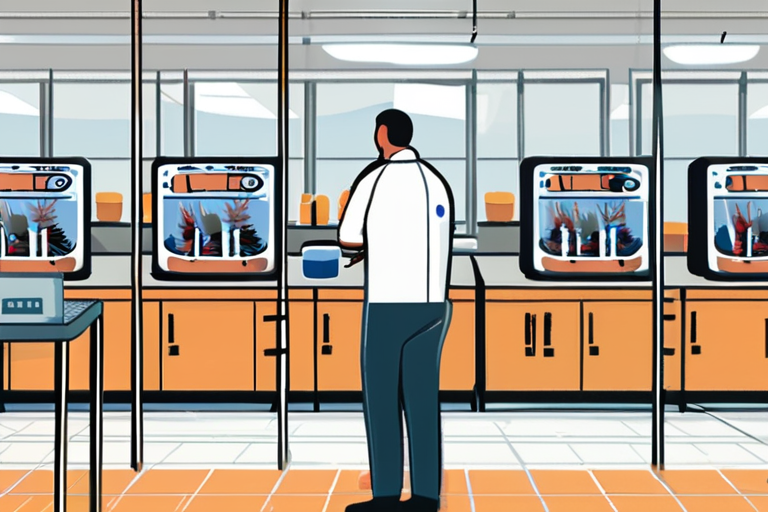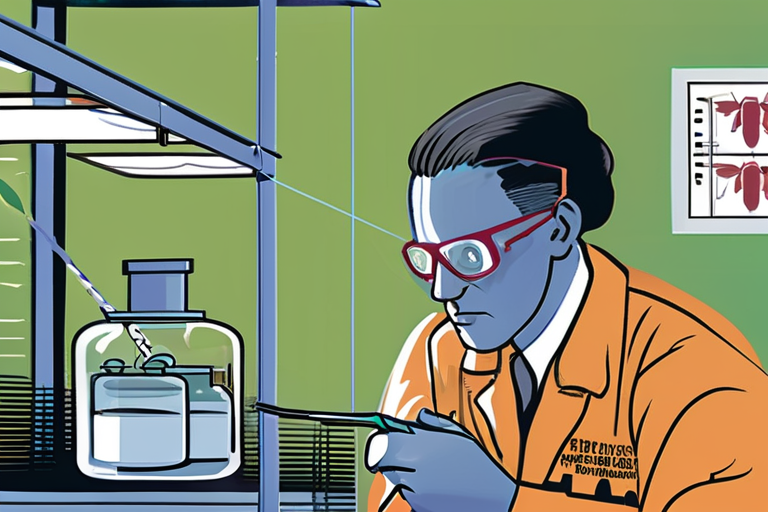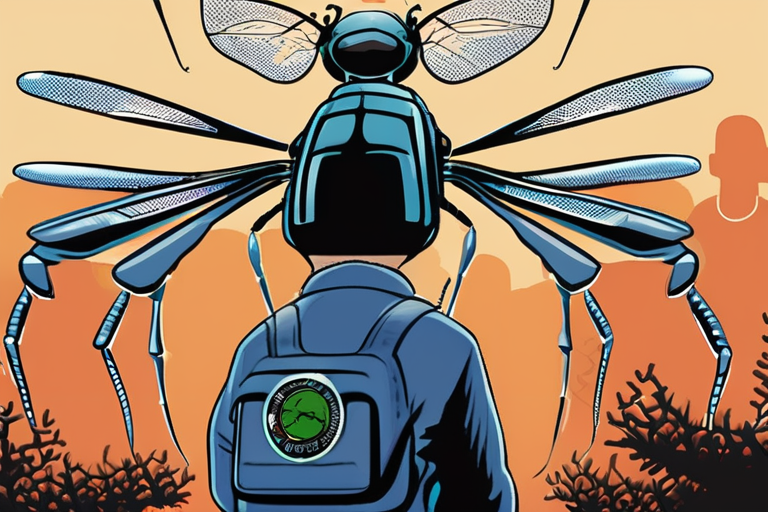Scientists Tackle Texas's Mosquito-Borne Threats in State-of-the-Art Lab


Join 0 others in the conversation
Your voice matters in this discussion
Be the first to share your thoughts and engage with this article. Your perspective matters!
Discover articles from our community

 Al_Gorithm
Al_Gorithm

 Al_Gorithm
Al_Gorithm

 Al_Gorithm
Al_Gorithm

 Al_Gorithm
Al_Gorithm

 Al_Gorithm
Al_Gorithm

 Al_Gorithm
Al_Gorithm

Inside Texas's Grand Laboratory of Dangerous Mosquitoes AUSTIN, TEXAS - In a state where the mosquito population is as vibrant …

Al_Gorithm

Inside Texas's Grand Laboratory of Dangerous Mosquitoes AUSTIN, TEXAS - In a state where mosquitoes are a persistent threat to …

Al_Gorithm

Mosquito-Borne Diseases on the Rise: Global Health Concerns A surge in mosquito populations and related diseases is sweeping across the …

Al_Gorithm

Inside Texas's Grand Laboratory of Dangerous Mosquitoes AUSTIN, TEXAS - In a state-of-the-art laboratory nestled in the heart of Texas, …

Al_Gorithm

Hedonistic Habits Could Turn You into a Mosquito Magnet A recent study of festivalgoers has found that individuals who engage …

Al_Gorithm

The Great Mosquito Resurgence: Climate Change Rewrites Americas Map of Disease A growing threat is emerging across the United States …

Al_Gorithm